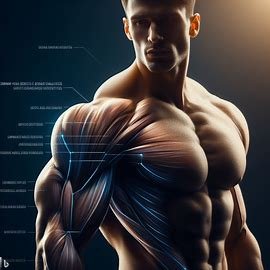Introduction to Vitamin Diversity in Athlete Diets
The role of nutrition in athletic performance is undeniably significant, and within that realm, vitamins hold a critical position. Vitamins are organic compounds required by the body in small amounts to maintain physiological functions. They are essential for energy production, immune function, blood clotting and maintaining healthy skin, bones, and brain function. For athletes, whose energy expenditure and metabolic rates are higher than the average individual, the intake and diversity of vitamins are of paramount importance.
While it’s common knowledge that athletes require a higher caloric intake, it’s equally crucial to understand the importance of vitamin diversity in their diets. Athletes need a wide range of vitamins to ensure optimal health and performance. Each vitamin plays a unique role in the body, contributing to different aspects of an athlete’s physical and mental performance.
For instance, B-vitamins are involved in energy production and repair of damaged cells, including those broken down during intense physical activity. Vitamin D, on the other hand, aids in calcium absorption, promoting bone health and muscle function. Vitamins A, C, and E are potent antioxidants that protect against oxidative stress induced by intense training sessions. The list goes on, underscoring the importance of a diverse vitamin intake.
However, despite the vital role of vitamins, many athletes struggle with achieving the necessary diversity in their diet. This challenge can be due to various factors, including lack of knowledge, dietary restrictions, or the misconception that consuming more protein and carbohydrates alone will enhance performance.
In this article, we will delve deeper into the importance of vitamin diversity in athlete diets, the role of different vitamins, and the potential implications of deficiencies. We will also provide practical recommendations for athletes to improve the diversity of vitamins in their diets.
Understanding Vitamin Diversity in Athlete Diets
As we delve into the topic of vitamin diversity in athlete diets, it’s essential to understand the specific roles of various vitamins and their impact on athletic performance.
Vitamin A
Vitamin A is a powerful antioxidant that plays a critical role in maintaining vision, promoting growth and development, and enhancing immune function. For athletes, it helps to repair tissues damaged during intensive workouts and protects against infections that can compromise performance.
Vitamin B Complex
The Vitamin B complex, including B1 (thiamine), B2 (riboflavin), B3 (niacin), B5 (pantothenic acid), B6 (pyridoxine), B7 (biotin), B9 (folate), and B12 (cobalamin), plays a crucial role in energy production, DNA repair, and the formation of red blood cells. Athletes require a higher intake of these vitamins to support their high energy expenditure and to aid in recovery and repair post-workout.
Omega-3 Ultra BP (Fish Oil)
Package: 30 sofgels capsules Active Substance: Fish Oil – 1300 mg (EPA/DHA – 650/260), Vitamin E – 2 mg Product Name: Omega-3, Fish Oil
Vitamin C
Vitamin C is a potent antioxidant that aids in collagen production, a protein necessary for the formation of connective tissues, skin, blood vessels, and muscles. It also enhances iron absorption, a mineral vital for oxygen transport in the body. For athletes, Vitamin C aids in recovery and helps maintain a healthy immune system.
Vitamin D
Vitamin D is essential for calcium absorption, promoting bone health and muscle function. Athletes with adequate Vitamin D levels have shown improved muscle recovery and reduced inflammation post-exercise.
Vitamin E
Vitamin E, like Vitamin A and C, is a powerful antioxidant. It helps protect the body against damage from free radicals, promotes immune function, and aids in DNA repair. Athletes may benefit from its antioxidant properties, which can help reduce oxidative stress caused by intense training.
Consequences of Vitamin Deficiencies in Athletes
A lack of vitamin diversity can lead to deficiencies, potentially affecting an athlete’s performance and overall health. For instance, deficiencies in B-vitamins can lead to reduced energy production, impacting athletic performance. A lack of Vitamin D can result in impaired bone health and muscle function, increasing the risk of injury. Vitamin A, C, and E deficiencies can compromise the immune system, making athletes more susceptible to illnesses.
Conclusion
It is clear that vitamin diversity is crucial for athletes to maintain optimal health and maximize their performance. A diet rich in a variety of vitamins not only supports the high energy demands of athletic activities but also aids in recovery, promotes immune function, and protects against oxidative stress. Understanding the role of different vitamins and ensuring a diverse intake is, therefore, a critical aspect of sports nutrition.
Practical Recommendations for Enhancing Vitamin Diversity
Given the importance of vitamin diversity in athlete diets, here are some practical recommendations to ensure a diverse and adequate vitamin intake.
Eat a Variety of Foods
The simplest and most effective way to ensure vitamin diversity is to consume a wide variety of foods. Include different types of fruits, vegetables, whole grains, lean proteins, and healthy fats in your diet. Each food group provides a unique mix of vitamins and other nutrients. For instance, citrus fruits are high in Vitamin C, leafy greens provide Vitamin K, and dairy products are a good source of Vitamin D.
Include Vitamin-Rich Snacks
Snacks are an excellent opportunity to increase vitamin intake. Opt for vitamin-rich snacks like nuts, seeds, fresh fruits, and vegetables instead of processed foods with little nutritional value. For example, almonds are high in Vitamin E, oranges provide Vitamin C, and carrots are rich in Vitamin A.
Consider Fortified Foods
Fortified foods, such as cereals or plant-based milks, are those that have vitamins added to them. These can be a good option for athletes who struggle to meet their nutritional needs through diet alone. However, it’s essential to read labels carefully as some fortified foods can also be high in added sugars.
Stay Hydrated
While not directly providing vitamins, staying hydrated is essential for nutrient absorption, including vitamins. Make sure to drink enough fluids, especially around workouts.
Consult a Nutritionist
Given the unique nutritional needs of athletes, it can be beneficial to consult a sports nutritionist. They can provide personalized advice based on your specific needs, dietary preferences, and training regimen.
Consider Supplementation
If meeting vitamin needs through diet is challenging, supplementation can be considered. However, it’s crucial to consult a healthcare provider or a nutritionist before starting any supplement regimen. Remember, supplements should not replace a balanced diet but can help fill nutritional gaps.
In conclusion, achieving vitamin diversity requires conscious effort and planning. However, the benefits for athletic performance and overall health make it a worthwhile endeavor.
 VITAMINS AND MINERALS
VITAMINS AND MINERALS


